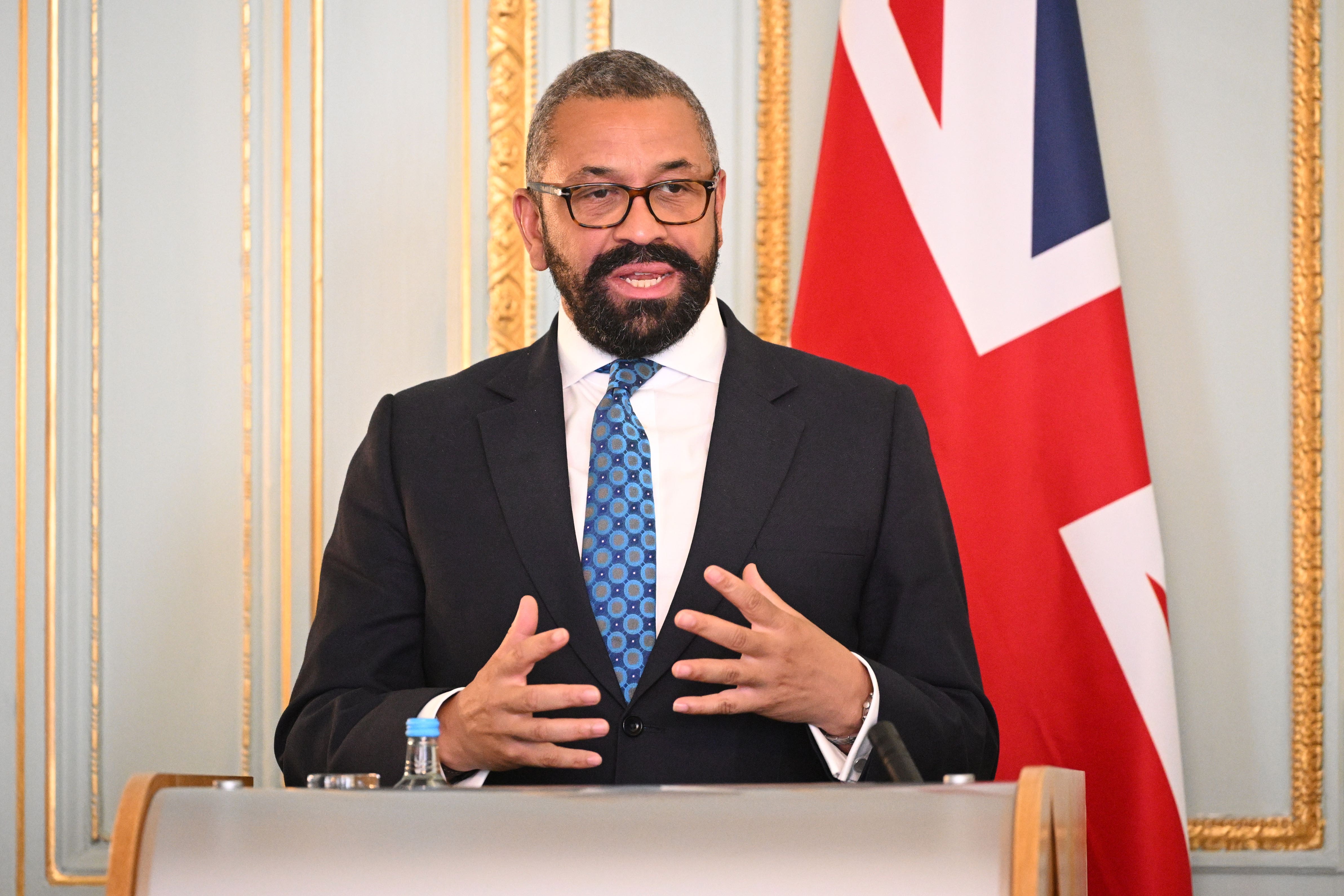Cleverly calls for global cooperation at first UN Security Council meeting on AI
The Foreign Secretary told the UK-chaired session in New York that artificial intelligence ‘knows no borders’.

Your support helps us to tell the story
From reproductive rights to climate change to Big Tech, The Independent is on the ground when the story is developing. Whether it's investigating the financials of Elon Musk's pro-Trump PAC or producing our latest documentary, 'The A Word', which shines a light on the American women fighting for reproductive rights, we know how important it is to parse out the facts from the messaging.
At such a critical moment in US history, we need reporters on the ground. Your donation allows us to keep sending journalists to speak to both sides of the story.
The Independent is trusted by Americans across the entire political spectrum. And unlike many other quality news outlets, we choose not to lock Americans out of our reporting and analysis with paywalls. We believe quality journalism should be available to everyone, paid for by those who can afford it.
Your support makes all the difference.James Cleverly called for global governance of artificial intelligence as it “knows no borders” at the first UN Security Council meeting on the issue.
The Foreign Secretary said the technology would “fundamentally alter every aspect of human life” and could “enhance or disrupt global strategic stability”.
The UK chaired the first UN Security Council session on the risks of AI for international peace and security on Tuesday, the centrepiece of its council presidency this month.
No country will be untouched by AI so we must involve and engage the widest coalition of international actors from all sectors
The rapid development of the emerging technology has prompted fears abouts its potential, as well as hope of the possibilities it could offer.
Questions about potential regulation has been a recurring issue in recent months among politicians and policymakers across the world.
UN chief Antonio Guterres issued a stark warning when he said AI misuse could cause “horrific levels of deaths and destruction” and could “amplify bias, reinforce discrimination and enable new levels of authoritarian surveillance”.
Mr Cleverly told the meeting in New York: “It challenges our fundamental assumptions about defence and deterrence.
“It poses moral questions about accountability for lethal decisions on the battlefield.
“There can already be no doubt that AI changes the speed, scale and spread of disinformation with hugely harmful consequences for democracy and stability.
“AI could aid the reckless quest for weapons of mass destruction by state and non-state actors alike.
“But it could also help us stop proliferation.
“That’s why we urgently need to shape the global governance of transformative technologies because AI knows no borders.
“No country will be untouched by AI so we must involve and engage the widest coalition of international actors from all sectors.”
Prime Minister Rishi Sunak has sought to position Britain as a world leader on the technology, with London set to host the first major summit on the issue later this year.
The Foreign Secretary set out the four principles on which the UK’s vision is founded.
“Open – AI should support freedom and democracy.
“Responsible – AI should be consistent with the rule of law and human rights.
“Secure – AI should be safe and predictable by design, safeguarding property rights, privacy and national security.
“And resilient – AI should be trusted by the public and critical systems must be protected.”
The meeting also included briefings by international AI experts and discussion among the 15 council members on its implications.
Secretary-general Mr Guterres said: “The malicious use of AI systems for terrorist, criminal or state purposes could cause horrific levels of deaths and destruction, widespread trauma and deep psychological damage on an unimaginable scale.”
While generative AI has “enormous potential for good”, Mr Guterres said that “its creators themselves have warned that much bigger, potentially catastrophic and existential risks lie ahead.
“Without action to address these risks, we are derelict in our responsibilities to present and future generations.”